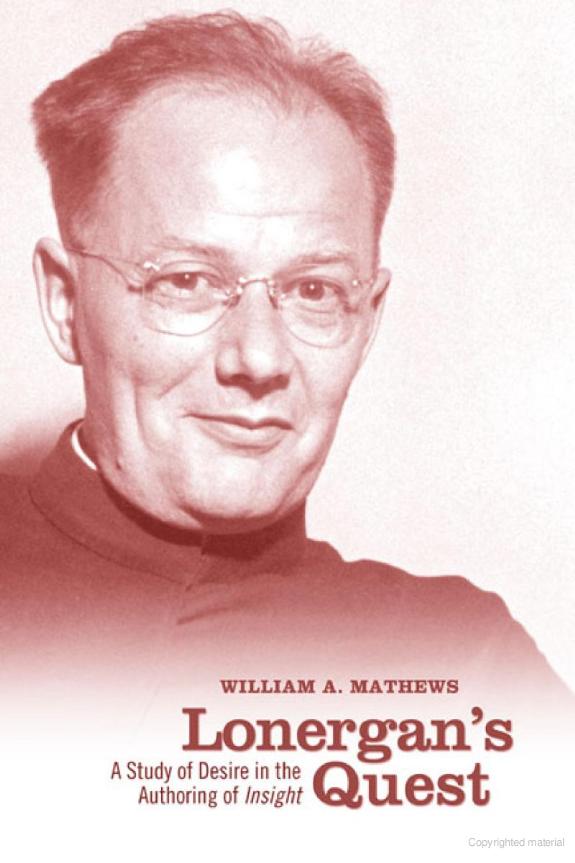
AnthonyFlood.com
Philosophy against Misosophy

Bias, Liberation, and Cosmopolis
Bernard J. F. Lonergan, S.J.
5. The Dialectic of Community
The name, dialectic, has been employed in a variety of meanings.
In Plato, it denoted the art of philosophic dialogue and was contrasted with eristic.
In Aristotle, it referred to an effort to discover clues to the truth by reviewing and scrutinizing the opinions of others.
For the Schoolmen, it became the application of logical rules to public disputation.
Hegel employed the word to refer to his triadic process from the concept of being to the Absolute Idea.
Marx inverted Hegel and so conceived as dialectical a non-mechanical, materialist process.
Summarily, then, dialectic denotes a combination of the concrete, the dynamic, and the contradictory; but this combination may be found in a dialogue, in the history of philosophic opinions, or in historical process generally.
For the sake of greater precision, let us say that a dialectic is a concrete unfolding of linked but opposed principles of change. Thus, there will be a dialectic, if
(1) there is an aggregate of events of a determinate character,
(2) the events may be traced to either or both of two principles,
(3) the principles are opposed yet bound together, and
(4) they are modified by the changes that successively result from them.
For example, the dramatic bias, described above*, was dialectical. The contents and affects emerging into consciousness provide the requisite aggregate of events of a determinate kind; these events originate from two principles, namely, neural demand functions and the exercise of the constructive or repressive censorship; the two principles are linked as patterned and patterning; they are opposed inasmuch as the censorship not only constructs but also represses and, again, inasmuch as a misguided censorship results in neglected neural demands forcing their way into consciousness; finally, change is cumulative, for the orientation of the censorship at any time and the neural demands to be met both depend on the past history of the stream of consciousness.
Now as there is a dialectic of the dramatic subject, so also there is a larger dialectic of community.
Social events can be traced to the two principles of human intersubjectivity and practical common sense.
The two principles are linked, for the spontaneous, intersubjective individual strives to understand and wants to behave intelligently; and inversely, intelligence would have nothing to put in order were there not the desires and fears, labours and satisfactions of individuals.
Again, these linked principles are opposed, for it is their opposition that accounts for the tension of community.
Finally, these linked and opposed principles are modified by the changes that result from them; the development of common sense consists in the further questions and insights that arise from the situations produced by previous operations of practical common sense; and the alternations of social tranquillity and social crisis mark successive stages in the adaptation of human spontaneity and sensibility to the demands of developing intelligence.
In two manners this dialectic of community differs from the dialectic of the dramatic subject.
First, there is a difference in extent, for the dialectic of community regards the history of human relationships, while the inner dialectic of the subject regards the biography of an individual.
Secondly, there is a difference in the level of activity, for the dialectic of community is concerned with the interplay of more or less conscious intelligence and more or less conscious spontaneity in an aggregate of individuals, while the dialectic of the subject is concerned with the entry of neural demands into consciousness.
Accordingly, one might say that a single dialectic of community is related to a manifold of individual sets of neural demand functions through a manifold of individual dialectics.
In this relationship, the dialectic of community holds the dominant position, for it gives rise to the situations that stimulate neural demands and it moulds the orientation of intelligence that preconsciously exercises the censorship.
Still, as is clear, one must not suppose this dominance to be absolute, for both covertly and overtly, neural demands conspire with an obnubilation of intelligence, and what happens in isolated individuals tends to bring them together and so to provide a focal point from which aberrant social attitudes originate.
This raises the basic question of a bias in common sense. Four distinct aspects call for attention. There is the already mentioned bias arising from the psychological depths, and commonly it is marked by its sexual overtones. There also are the individual bias of egoism, the group bias with its class conflicts, and a general bias that tends to set common sense against science and philosophy. On these three something must now be said.
* Insight, Chapter VI, § 2.7